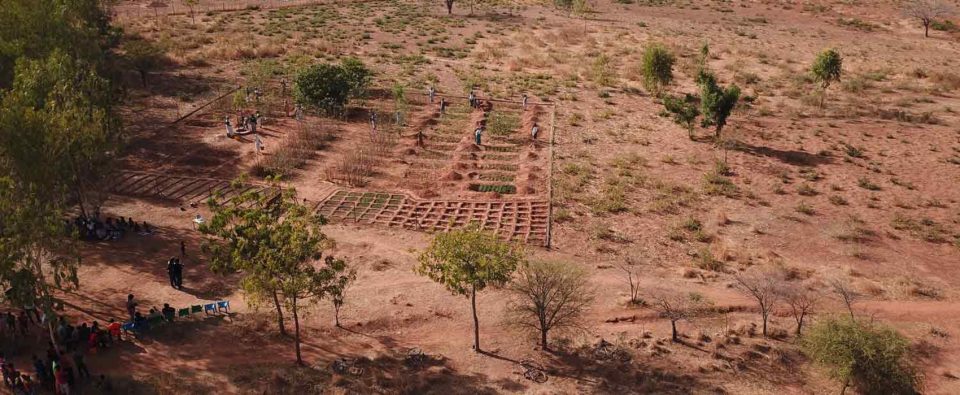In 2017, 32-year-old Hamsa Hamidou of Simiri in southwest Niger’s Tillabéry region, was given a cow. Three years later, he sold it and used the money to buy a sheep and ewe. “I fattened them and then sold them. I continued this way and three years later, I had four ewes, three sheep, and a cow,” he says.
Supported by the Programme for Strengthening Resilience to Food and Nutrition Insecurity in the Sahel (P2RS), Hamidou’s small-scale enterprise has allowed him to be financially independent and to meet his family’s needs.
Launched in 2015 and completed this year, the programme was financed by the African Development Fund, the concessional window of the African Development Bank Group, through a grant and a loan of $22.79 million each.
Forty-year-old Ibrahim Bako also benefited from programme. A resident of Nakwana, in southern Niger’s Maradi region, Bako got help to fight the drifting sand dunes, a major agricultural hazard in the region. “The dunes bury our fields and wells. We mobilized our young people and used whatever means we had to address the problem,” he explained. “We stabilized 10 hectares to begin with, and then 30 hectares the second year. It was so successful that we not only secured the dunes but were also given funding to seed herbaceous plants and 12,000 seedlings. Today, the site is rich in biodiversity thanks to the return of wildlife and plant species.”
A 10-person management committee has been set up to protect the site from wandering animals. The committee has set a tax on owners whose animals are found on the site and puts the money that is collected into its account to replace destroyed or dead plants.
The programme has also set up a “goat kit” that has enabled women in four municipalities to expand their production of goat milk. They have sold over 8,070 litres for a turnover of $4,400. A large part of the milk was used to improve household nutrition, particularly for children and babies. People in these communities also sold 38 animals for $1,150 to cover vital social needs such as medicine, food, and paying for marriages. Donations and personal consumption, for example for the Tabaski sacrifice and baptisms, accounted for about 80 goats, worth nearly $1,700.
The programme has also invested in water control. Small-scale irrigation work has made 650 hectares cultivable, boosting agricultural production (food and cash crops) for 6,500 households or nearly 45,500 beneficiaries. Additional production, which mainly benefits women, totalled 13,261 tonnes during the last growing season.
The programme has shown that these investments can be profitable and can significantly improve the well-being of farmers, and diversify their sources of income.
Twenty-six water points (boreholes, pumping stations and wells) have been built and are meeting the needs of about 12,000 people and 20,914 livestock. Construction of 16 village and urban hydraulic systems, including six manual pumps and seven small-scale drinking water supplies, have provided water to more than 50,000 people and 19,981 tropical livestock through multi-village connections.
“The project, which began in 2015, was carried out in 25 municipalities spread over seven of Niger’s eight regions. It focused on the municipalities most exposed to climate change, where populations are particularly vulnerable,” explains Allachi Boukar, the national coordinator of the P2RS programme in Niger. “We have developed an innovative approach including the establishment of “farmer field schools” with technical management. People see the positive changes for themselves, which helps to change mind-sets and agricultural practices.”


